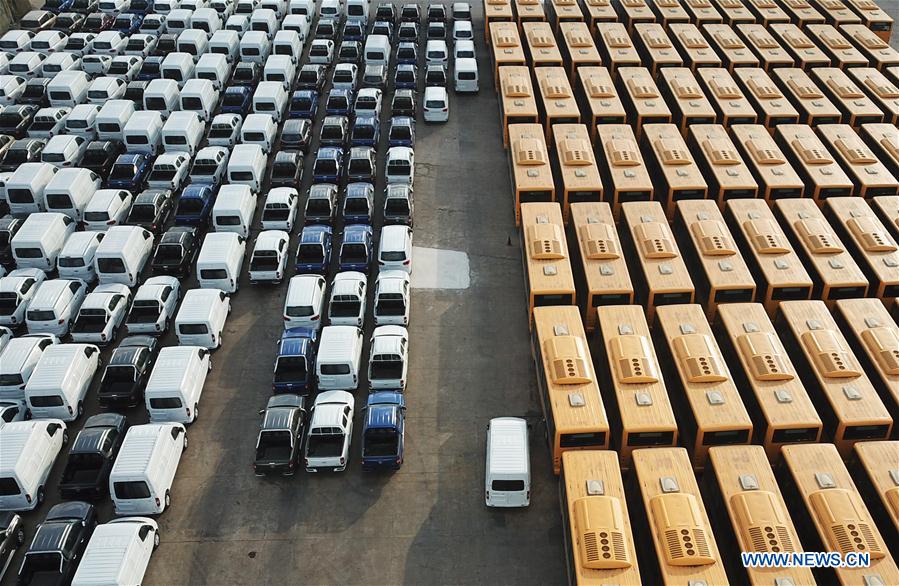Belt and Road construction enhances win-win partnership in auto industry
The China-proposed Belt and Road Initiative (BRI) has enhanced win-win cooperation between Chinese auto enterprises and their counterparts in countries and regions along the Belt and Road, industry insiders said.
The China-proposed Belt and Road Initiative (BRI) has enhanced win-win cooperation between Chinese auto enterprises and their counterparts in countries and regions along the Belt and Road, industry insiders said.

Aerial photo taken on Dec. 31, 2018 shows homemade vehicles at a port in Lianyungang, east China's Jiangsu Province. [Photo/Xinhua]
China's leading truck producer, Shaanxi Automobile Holding Group Co., Ltd, opened its first assembly plant in Algeria last May, as part of a joint venture with its Algerian partner Mazouz Trade Group, promoting the development of local manufacturing and bringing job opportunities.
The plant has created more than 2,000 jobs so far, notching up over 200 million U.S. dollars in profits.
"The establishment of an assembly plant in Algeria can help introduce Chinese manufacturing technologies and accelerate the development of the automotive industry in the country," said Ahmed Mazouz, CEO of Mazouz Group.
"With the plant, we were able to output the first Algerian-made truck," he said.
As the construction of the BRI advances, the truck manufacturing giant based in northwest China's Shaanxi Province is stepping up the pace of global expansion.
However, it is a tough road ahead. Heavy-duty trucks have long been dominated by traditional brands like Volvo and Scania on the global market, which makes it challenging to gain recognition from foreign clients.
Through continuous researches and innovation, the company has launched products with low-cost and high-performance while actively going global.
By the end of last year, it had established two overseas subsidiaries, 33 overseas representative offices as well as more than 330 overseas service sites, and had promoted local production in 12 countries and regions including Kenya, Nigeria, and Saudi Arabia.
The truck giant also enjoys the dividends of fast freight transportation under the BRI construction.
China-Europe freight trains made 6,363 trips last year, surging 73 percent from 2017, according to the China Railway Corporation.
The freight train service, a crucial part of the BRI, began operation in March 2011. Over the years, trains have rumbled along the route, taking garments, auto parts, and other Chinese goods to European consumers, while bringing back European food, machinery, equipment and timber.
"The China-Europe freight trains and BRI construction are so important for us," said Liu Keqiang, deputy general manager of Shaanxi Automobile Holding Group.
Thanks to them, the company has exported more than 150,000 vehicles over the years. A total of 12,575 units were exported last year, including 5,666 units to the Asia-Pacific region, central Asia and the Middle East.
"The BRI serves as a promising platform for international cooperation, bringing win-win results to Chinese auto enterprises and their counterparts in countries and regions along the Belt and Road," Liu said.

